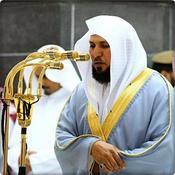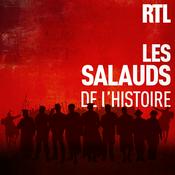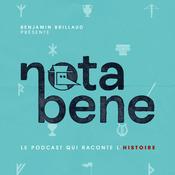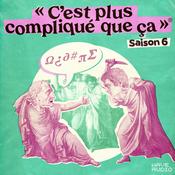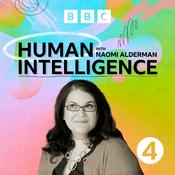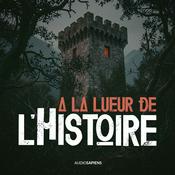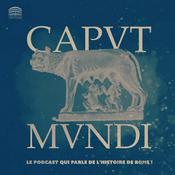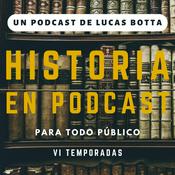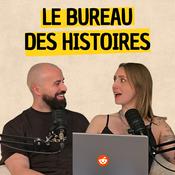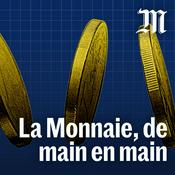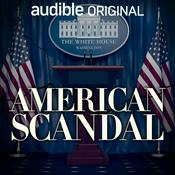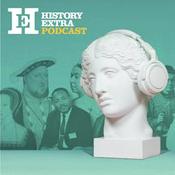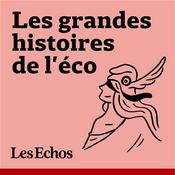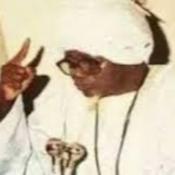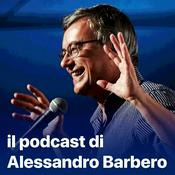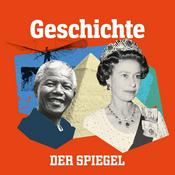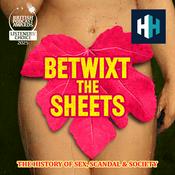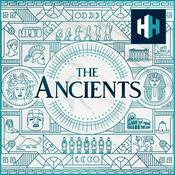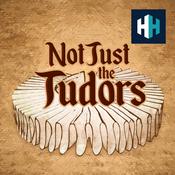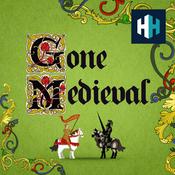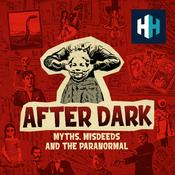1489 épisodes
- The arrest of Andrew Mountbatten-Windsor, formerly Prince Andrew (who denies any wrongdoing and is innocent until proven guilty), has encouraged news outlets to look at the precedent of royals falling foul of the law. Many have referred to the trial and execution of Charles I over 350 years ago as the last British royal to be arrested, but that isn't technically the case...in this bonus episode, Dan gives a potted history of the many times royals - princes in particular - have found themselves in trouble with the law and with their monarch siblings. From the rivalries of the Anglo-Saxon and Norman kings to the scandals of the Plantagenets and the Georgians, this is a tumultuous account of Britain's monarchy through the ages.
Written by Dan Snow, produced by Mariana Des Forges and edited by Dougal Patmore.
Dan Snow's History Hit is now available on YouTube! Check it out at: https://www.youtube.com/@DSHHPodcast
Sign up to History Hit for hundreds of hours of original documentaries, with a new release every week and ad-free podcasts. Sign up at https://www.historyhit.com/subscribe.
You can also email the podcast directly at [email protected].
Hosted on Acast. See acast.com/privacy for more information. - In 1381, after plague, famine and war had pushed England to the brink, a final blow sparked an extraordinary uprising. This episode explores the Peasants’ Revolt, not as a chaotic riot, but as a coordinated challenge to royal and religious power in England.
To cut through the myths, we're joined by medieval historian Dr Eleanor Janega, co-host of the 'Gone Medieval' podcast. She explains what really happened, why it mattered, and how this rebellion sent shockwaves through medieval England and beyond.
Produced by Mariana Des Forges and edited by Dougal Patmore.
Dan Snow's History Hit is now available on YouTube! Check it out at: https://www.youtube.com/@DSHHPodcast
Sign up to History Hit for hundreds of hours of original documentaries, with a new release every week and ad-free podcasts. Sign up at https://www.historyhit.com/subscribe.
We'd love to hear your feedback - you can take part in our podcast survey here: https://insights.historyhit.com/history-hit-podcast-always-on.
You can also email the podcast directly at [email protected].
Hosted on Acast. See acast.com/privacy for more information. - From icy seas to fire-lit longhouses, Dan heads to Iceland to trace the birth of one of the world’s most unique medieval cultures — at the very edge of the known world. He joins experts across the country to discover how those early Vikings survived brutal winters in total isolation, save for their tight-knit communities and (surprisingly) warm turf houses. He explores the remarkable medieval chronicle Book of Settlement (Landnámabók) and the dramatic stories preserved in the Sagas of Icelanders (Íslendingasögur) that tell us who the first settlers were, where they came from, and how they carved out a new society on a raw volcanic island.
Produced by Anne-Marie Luff and edited by Dougal Patmore
You can see Dan's adventures in Iceland in his brand new documentary on History Hit. Sign up to watch the mini-series Icelandic Vikings here: https://www.historyhit.com/subscribe.
If you'd like to explore Iceland yourself, head to https://www.visiticeland.com/
You can email the podcast directly at [email protected].
Hosted on Acast. See acast.com/privacy for more information. - He had at least 14 known mistresses and a hoard of illegitimate children; Charles II's private life was as politically charged as it was scandalous. He presided over the Restoration court, a world of excess, intrigue, gambling, gossip and a lot of sex. Dan is joined by the host of the Betwixt the Sheets podcast, Dr Kate Lister, to explore the salacious side of Restoration England and examine how power, pleasure, and reputation collided at court.
A warning that this episode isn't suitable for children!
Produced by Mariana Des Forges and edited by Dougal Patmore.
You can learn more about Nell Gwynn from Kate in her TV documentary on the History Hit website: sign up at https://www.historyhit.com/subscribe to watch
Dan Snow's History Hit is now available on YouTube! Check it out at: https://www.youtube.com/@DSHHPodcast
Sign up to History Hit for hundreds of hours of original documentaries, with a new release every week and ad-free podcasts. Sign up at https://www.historyhit.com/subscribe.
We'd love to hear your feedback - you can take part in our podcast survey here: https://insights.historyhit.com/history-hit-podcast-always-on.
You can also email the podcast directly at [email protected].
Hosted on Acast. See acast.com/privacy for more information. - In the late 19th century, Ireland suffered a potato blight that became a mass catastrophe. Today, we explore the conditions that left millions vulnerable, and assess the role of the British government in shaping the crisis.
For this, we're joined by Professor Christine Kinealy, founding Director of Ireland's Great Hunger Institute at Quinnipiac University.
Produced by James Hickmann and edited by Dougal Patmore.
Dan Snow's History Hit is now available on YouTube! Check it out at: https://www.youtube.com/@DSHHPodcast
Sign up to History Hit for hundreds of hours of original documentaries, with a new release every week and ad-free podcasts. Sign up at https://www.historyhit.com/subscribe.
You can also email the podcast directly at [email protected].
Hosted on Acast. See acast.com/privacy for more information.
Plus de podcasts Histoire
Podcasts tendance de Histoire
À propos de Dan Snow's History Hit
Historian Dan Snow journeys across the globe to tell the stories of history's defining moments. From the Colosseum in Rome to the Great Wall of China, the battlefields of Waterloo to the Tomb of Tutankhamun, join Dan as he explores the how and why of the greatest monuments, battles, heroes, villains and events that have shaped our world.New episodes on Mondays and Thursdays with bonus subscriber only episodes every other Friday.You can get in touch with us at [email protected] podcast by History Hit, the world's best history channel and creators of award-winning podcasts The Ancients, Gone Medieval, and Betwixt the Sheets.Sign up to History Hit for hundreds of hours of original documentaries, with a new release every week and ad-free podcasts. Sign up at https://www.historyhit.com/subscribe.
Hosted on Acast. See acast.com/privacy for more information.
Site web du podcastÉcoutez Dan Snow's History Hit, The Holy Quran, Sheikh Maher Al-Muaiqly | القران الكريم ماهر المعيقلي ou d'autres podcasts du monde entier - avec l'app de radio.fr
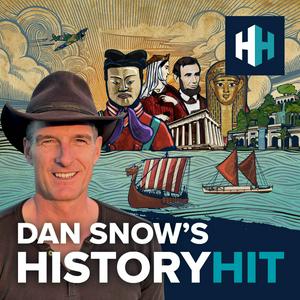
Obtenez l’app radio.fr gratuite
- Ajout de radios et podcasts en favoris
- Diffusion via Wi-Fi ou Bluetooth
- Carplay & Android Auto compatibles
- Et encore plus de fonctionnalités
Obtenez l’app radio.fr gratuite
- Ajout de radios et podcasts en favoris
- Diffusion via Wi-Fi ou Bluetooth
- Carplay & Android Auto compatibles
- Et encore plus de fonctionnalités


Dan Snow's History Hit
Scannez le code,
Téléchargez l’app,
Écoutez.
Téléchargez l’app,
Écoutez.


